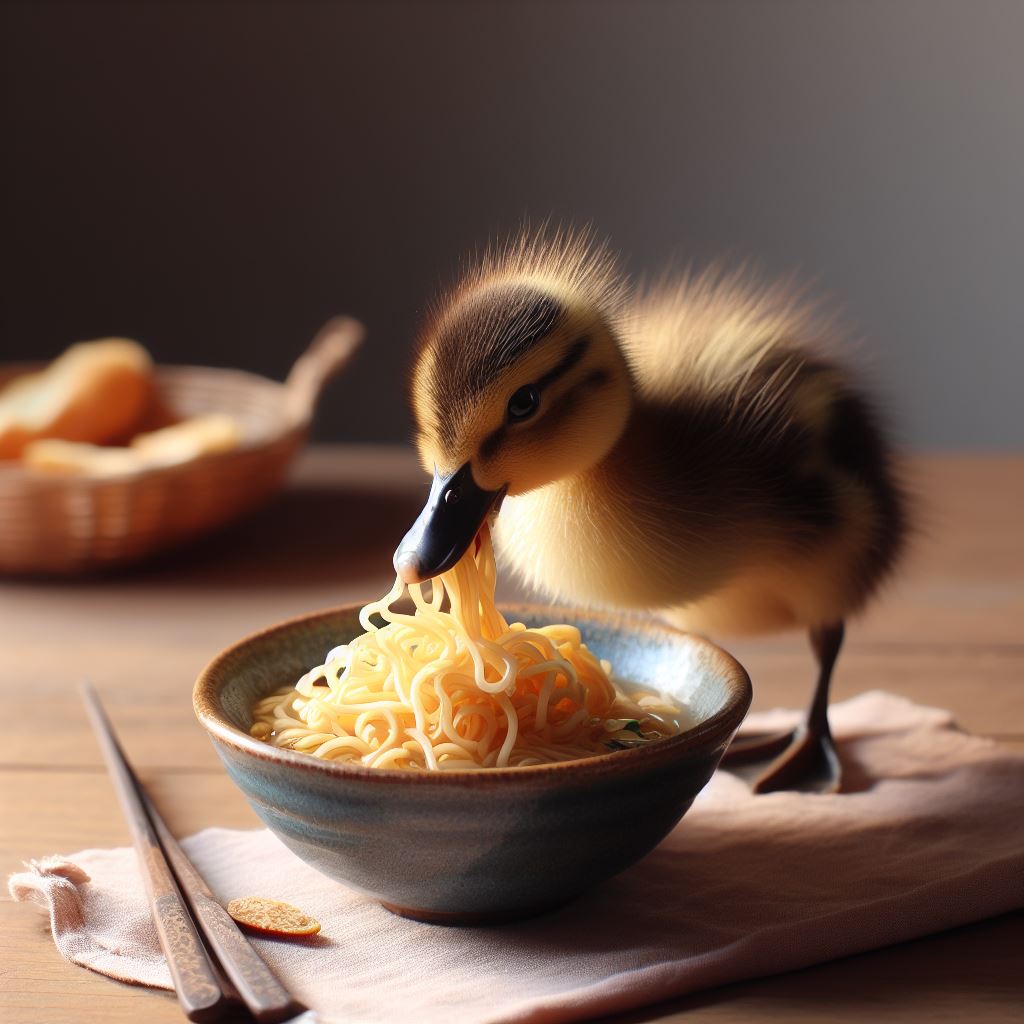Can Ducks Eat Bell Peppers?

Table of content:
- Can Ducks Eat Red Bell Peppers?
- Can Chickens and Ducks Eat Bell Peppers?
- Can Ducks Eat Bell Peppers from Backyard Chickens?
- Can Ducks Eat Green Bell Peppers?
- Nutritional Value of Bell Peppers for Ducks
- Preparing and Serving Bell Peppers to Ducks
- Benefits and Risks of Feeding Bell Peppers to Ducks
- Conclusion
Can ducks eat bell peppers? Bell peppers are a nutritious and safe treat for ducks in moderation. Both red, green, yellow and other colored bell peppers provide beneficial vitamins and minerals. When fed responsibly, peppers offer ducks variety and supplemental nutrition in their diet.
Can Ducks Eat Red Bell Peppers?
Yes, ducks can safely eat red bell peppers. Red bell peppers are one of the many different colored varieties of bell peppers. Along with green, yellow, orange, and purple bell peppers, red bell peppers are a healthy snack or addition to a balanced diet for ducks.
Red bell peppers contain slightly higher amounts of certain nutrients compared to other colors. For example, red bell peppers have more beta-carotene, which is converted to vitamin A in the body. They also have additional vitamin C and antioxidants. The red pigment that gives them their vibrant color is called lycopene. This powerful antioxidant protects duck’s cells from damage.
So the bright red color signals that red bell peppers pack an extra nutritional punch! The moderate amounts that ducks would consume make red bell peppers a wise supplemental food.
Can Chickens and Ducks Eat Bell Peppers?
Bell peppers are not only nutritious for ducks, but chickens can eat them too. Both ducks and chickens can enjoy chopped raw bell peppers as an occasional treat. For flock owners raising both ducks and chickens together, you can confidently offer bell peppers to all.
Chickens also benefit from the vitamin C, vitamin A, antioxidants and fiber that bell peppers provide. The crisp texture and appealing colors are a nice change of pace from standard chicken feed. In moderation, bell peppers are a safe shareable food between ducks and chickens in the same coop and yard.
Can Ducks Eat Bell Peppers from Backyard Chickens?
For those raising both ducks and chickens at home, you may wonder if you should portion some of the homegrown bell peppers from your backyard chicken garden to your ducks. Absolutely! Any extra bell peppers can be fed to both ducks and chickens.
Backyard homegrown produce is an excellent way to provide birds with natural, healthy treats. The bell peppers from your garden are sure to be a big hit with the ducks! Having them forage and eat the fresh peppers is good behavioral enrichment as well.
When collecting the bell peppers, just be sure to wash them off and remove any dirt or debris first. Then simply chop into bite-sized pieces before feeding bell peppers from the garden to ducks and chickens alike.
Can Ducks Eat Green Bell Peppers?
Green bell peppers are another variety that provides safe, nutritious supplemental feeding for ducks. Many people wonder if there is a difference in nutritional value between red versus green bell peppers.
The main difference lies in ripeness. Red bell pepper is simply a ripe green pepper! So green peppers are not quite as sweet, and they contain slightly less sugar. They also have a bit more vitamin C content on average compared to red. But both remain excellent, low calorie treats for ducks.
No matter what color you have on hand, feel confident that green bell peppers are a healthy choice that provides vitamin C and other important nutrients for ducks. The crunchy texture also promotes good dental health. Feed chopped green bell peppers to ducks in moderation along with their main diet.
Nutritional Value of Bell Peppers for Ducks
Now that we’ve covered that yes, ducks can eat bell peppers safely, let’s discuss why they make such a great supplemental food. What nutritional value do bell peppers offer ducks? Here is an overview:
- Vitamin C – Bell peppers are an excellent source of immune-boosting vitamin C. For ducks, vitamin C helps with collagen production, cartilage and bone health. It also acts as an antioxidant to remove waste from the body.
- Vitamin A – Bell peppers contain carotenoids like beta-carotene that are converted to vitamin A in the body. Vitamin A benefits duck vision, bone development and growth.
- Potassium – Potassium helps ducks maintain fluid balance and proper nerve and muscle function. Bell peppers provide a modest amount of this essential mineral.
- Fiber – While bell peppers are low in calories, they contain a fair amount of fiber that benefits digestion and gut health in ducks.
- Lycopene – The antioxidant lycopene found highest in red bell peppers protects duck’s cells from damage and inflammation.
- Vitamin B6 – Bell peppers supply some vitamin B6 to help ducks convert food into energy and create important hormones and antibodies.
So by providing vitamins A, C, and B6, plus potassium, antioxidants, and fiber with little caloric impact, bell peppers make an excellent supplemental choice over higher-calorie treats.
Preparing and Serving Bell Peppers to Ducks
Bell peppers are simple to prepare to serve to your ducks. Here are some tips:
- Wash thoroughly under running water to remove dirt and debris.
- Cut off the top and bottom. Then slice down the sides to unroll it.
- Remove the seeds and inner white membranes.
- Chop the remaining bell pepper flesh into smaller pieces or thin strips.
- Chopped size should be no larger than 1/4 inch by 1/4 inch or a thin strip to prevent choking.
- Place the chopped pepper pieces into a bowl or scatter directly in the ducks’ feeding area.
- Provide chopped peppers in moderation along with the duck’s normal feed. About 1-2 times per week is sufficient.
- Remove any uneaten portions within 1-2 hours to prevent spoiling.
Follow this simple prep process, and the ducks will enjoy the textures and flavors of fresh bell peppers!
Benefits and Risks of Feeding Bell Peppers to Ducks
Feeding nutritious foods like bell peppers to ducks has benefits, but there are also a few risks to consider:
Benefits
- Provides added nutrition from vitamins, minerals, and antioxidants
- Adds variety to the diet which improves appetite
- Encourages natural foraging behaviors
- Low calorie treat that will not lead to obesity
- Crunchy texture promotes healthy digestion
Risks
- Potential choking if pieces are too large
- Can cause loose stools if fed in excess
- Risk of crop impaction if not chopped adequately
- Must remove uneaten portions quickly to prevent rotting
As long as proper precautions are followed, bell peppers make an excellent supplemental addition to a duck’s diet. The health benefits far outweigh the minor risks.
Conclusion
In conclusion, ducks can safely eat bell peppers of all varieties including red, green, yellow, orange and purple colors. Bell peppers provide beneficial nutrition from vitamins A and C, potassium, fiber and lycopene. They add nice variety without excess calories.
Chopping the peppers into small pieces will allow ducks to eat them without risk of choking. Offer them occasionally and in moderation. When feeding your ducks homemade treats like bell peppers, provide no more than 10% of their daily calories from these sources.
Following these tips and guidelines will keep your ducks happy while optimizing their health! The nutrients in crisp, fresh bell peppers make them a smart supplemental food for ducks.
Welcome. I’m Adreena Shanum, the proud owner of this website, and I am incredibly passionate about animals, especially poultry. I founded adreenapets.com as a labor of love, stemming from my desire to share my knowledge and experiences with poultry enthusiasts worldwide.




